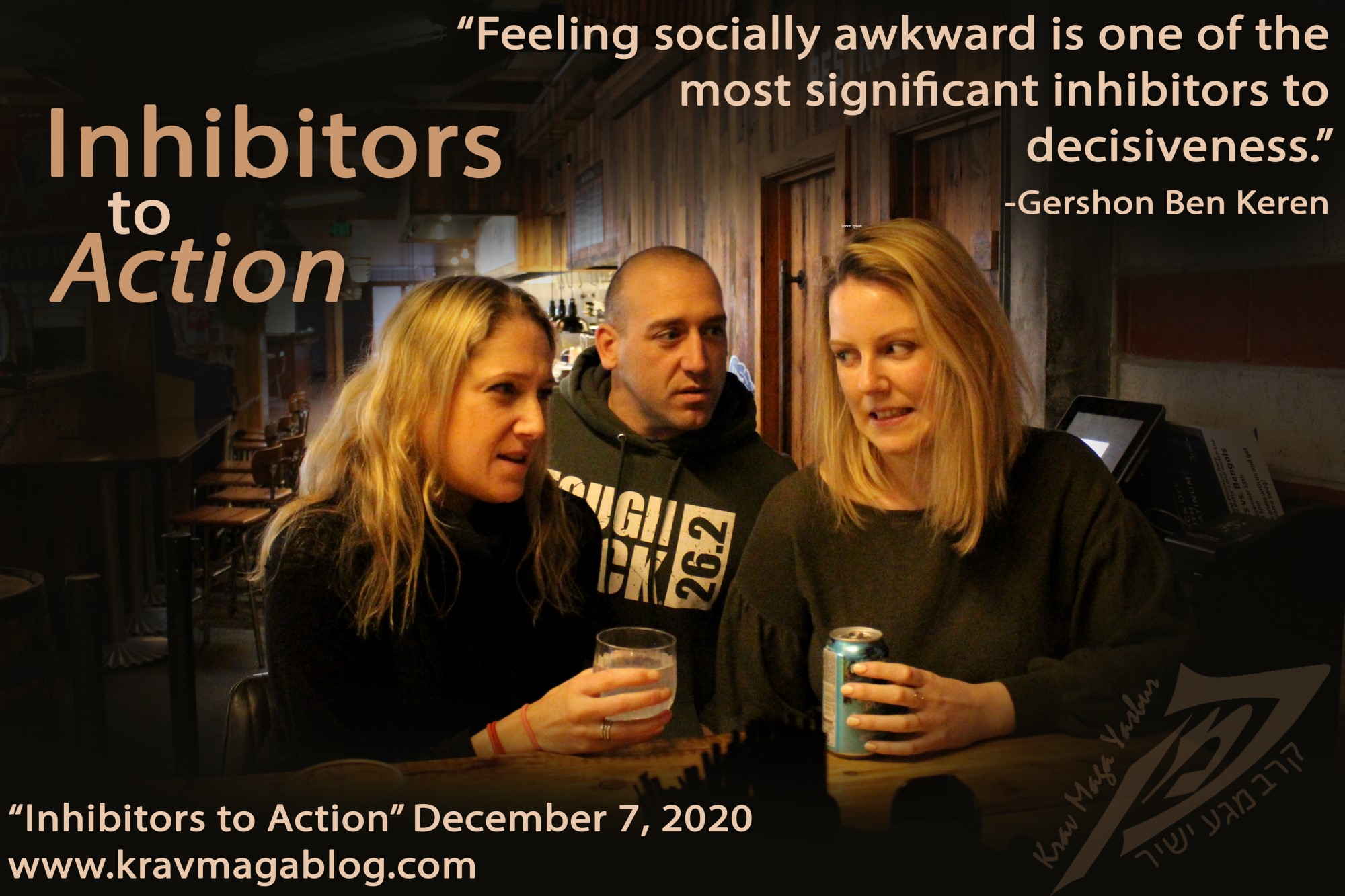One of the most important survival skills is decisiveness. I remember on a CP (Close Protection) course I was once on, being told by a travel security specialist, that in the event of an airplane crash, as soon as the plane comes to rest, you should grab your principal – the person you are looking after - and start moving (it’s one of the reasons, I always keep my shoes on when flying, even when I’m not working – and my footwear is practical for the purpose of evacuating quickly e.g. I don’t wear flip-flops or sandals). The people who wait for instruction by the flight staff, tend to be the ones who don’t make it. The 9/11 commission also noted a similar result, for those who stayed at their desks awaiting instruction, when the planes hit the Twin Towers. In a fast-moving, dangerous situation, responding decisively at the earliest opportunity, can mean the difference between life and death. A lot of people put their faith in their “fight or flight” response kicking in, however this isn’t always as consistent or reliable as we think, and recent advances in Neuroscience, suggest that it may not be the innate, inherent and culturally universal response to threats and dangers that we once thought. Rather, it may be that we will require some more major form of cognitive processing of an incident/confrontation, in order to be able to react and respond quickly. In this article I want to look at some of the things that inhibit us from acting – some of these I have written about before in detail; but here I want to “collect” the major inhibitors, in one place.
Denial and Discounting. One of the first things I learnt when being introduced to “Risk” as a concept, was not to categorize incidents as being “Low Risk” i.e. if risk exists, it exists and should be acknowledged or thought of as “Unknown Risk”, if a threat couldn’t be clearly identified. A vulnerability – such as leaving a window in your house open – is still a vulnerability, even if there isn’t a threat present (such as a burglar) to exploit it etc. Leaving your window open, shouldn’t be seen as a “low risk” action/behavior, just because you live in a low crime-rate neighborhood. Whilst living in such an area where there are few burglaries, may not put you at “High Risk”, the level of risk, remains “Unknown”. Discounting risk can mean that we fail to get round to completing simple tasks, such as making sure that our doors and windows are secure etc. Decisiveness isn’t always about how we respond in the moment to a threat, but taking a decision to act – ideally immediately - when we identify a vulnerability. Sometimes people ask me about home security, and when I ask them some time later if they’ve addressed the issues I’ve mentioned/pointed out, I’ll sometimes get the response that they haven’t yet got round to dealing with it, and/or now that they’ve thought about it they no longer think it’s an issue; which really means nothing has happened in the meantime, so there is no urgency to addressing it. If we are serious about our security, then even when there isn’t an immediate threat present, we should still act decisively towards dealing with our vulnerabilities.
We also have a habit of denying or discounting threats that are present in the moment, often because it is inconvenient for us to deal with them. I remember, many years ago, having to apply first aid to a man who had been stabbed, just after leaving a club I was working at. As we waited for the paramedics, and police, to arrive, he told me that he’d thought twice about coming in to the club, as he’d seen the guy (who’d stabbed him) who he had a history of trouble with, ahead of him in the queue to get in. I asked him why he hadn’t gone to one of the other clubs in the town, when he’d seen him, and he said that this was his initial response/reaction, but that he talked himself out of it. He convinced himself that the club was big enough that they wouldn’t run into each other, and that both of them would simply be looking to have a good time, and they hadn’t had any confrontations recently, etc. Although this wasn’t a fatal stabbing, it could have been, even if not intended that way. There are times when we are in the presence of a known danger that we need to acknowledge it and put as much distance as we can between us and them, even if it is inconvenient to do so. Being decisive in that moment and leaving would have saved that guy a lot of pain/discomfort, and wouldn’t have seen him ending his night in the emergency room.
One of the additional things that prevented this individual from giving up his space in the queue was that he was with a friend, and he felt embarrassed and socially awkward to suggest that they go somewhere else. Feeling socially awkward is one of the most significant inhibitors to decisiveness. People don’t want to be seen to be responding to danger e.g. they don’t want to tell a person who is crowding them to stay back, they don’t want to turn and ask somebody who seems to be following them if this is the case, they don’t want to acknowledge to their friend(s) that they feel scared and would rather go somewhere else, etc. Many people would rather take the chance and hope that the threat disappears and loses interest in them, than take an action – such as stepping back, raising the hands up in a placating manner, whilst making some non-aggressive communication, etc. – which would acknowledge to them, and to others that they think they are at risk. In my time working in this industry I have seen countless strategies touted that appeal to our desire to appear anonymous, rather than simply deal with the threat e.g. if you think you’re being followed, pretend to be on your phone, if somebody is talking aggressively, start talking to somebody near you about the weather etc. These options appeal to people – even though they have been proven not to work – because they don’t require us to engage in the socially awkward act of engaging with whoever is threatening us.
Decisiveness begins with acknowledgment, which means we can’t allow denial or discounting to inhibit us. Neither can we force ourselves into adopting ineffective strategies because we don’t want to draw attention to ourselves or feel socially uncomfortable enforcing a boundary.
Share:

Gershon Ben Keren
2.8K FollowersGershon Ben Keren, is a criminologist, security consultant and Krav Maga Instructor (5th Degree Black Belt) who completed his instructor training in Israel. He has written three books on Krav Maga and was a 2010 inductee into the Museum of Israeli Martial Arts.
Click here to learn more.

